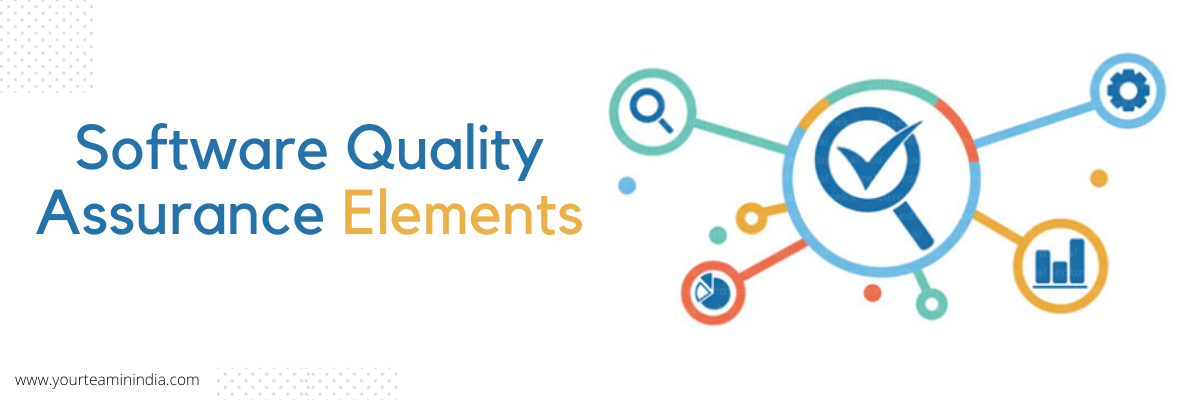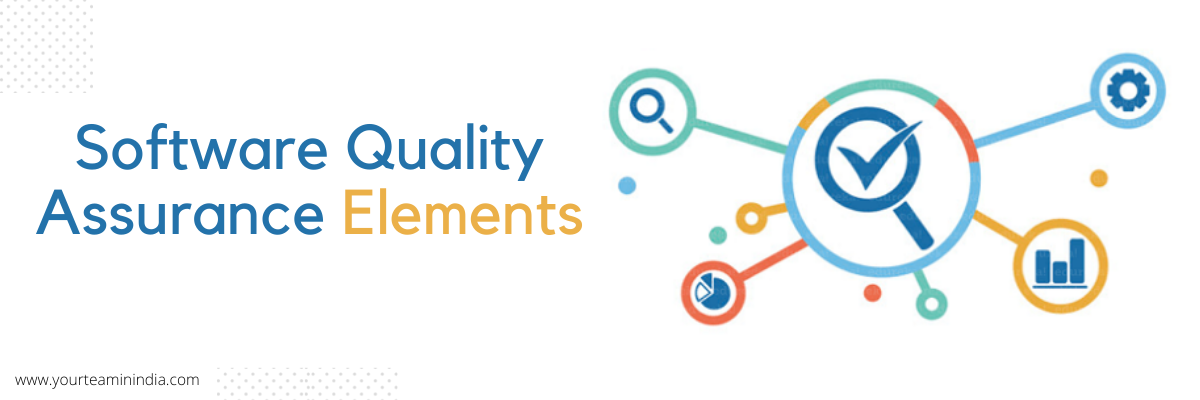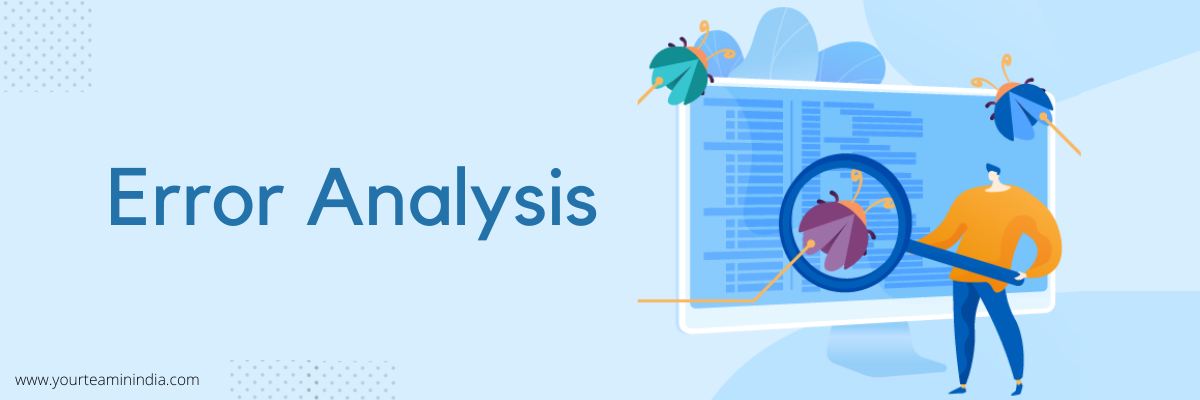Software quality assurance, also abbreviated as SQA, is a procedure that ensures that all software engineering processes, techniques, activities, and work items are monitored and meet the established criteria. There are specified standards that might be any of the following: ISO 9000, CMMI model, and ISO15504.
SQA encompasses the whole software development process, right from requirements definition through coding and release. Its main objective is to maintain good standards.
What includes in Quality Assurance: SQA activities?

Software quality assurance constitutes several functions that are divided into two groups. Software engineers who perform technical work and an SQA group in charge of quality assurance are responsible for record-keeping, planning, reporting, and analysis.
An autonomous SQA group performs the following tasks:
- Prepares a project's SQA plan: All stakeholders create and evaluate the program during project planning. The plan regulates the software engineering teams and the SQA group's quality assurance operations. The plan specifies the calculations to be carried out, audits and reviews to be carried out, project-specific standards, error reporting and tracking procedures, documentation to be generated by the SQA team, and the quantity of feedback to be given to the software project team.
- Participates in creating the software process description for the project: The software team chooses a procedure for the job to be done. Then, the SQA team examines the process description for conformance to organizational policy, internal software standards, externally enforced standards (such as ISO-9001), and other aspects of the software project plan.
- Examines software engineering operations to ensure adherence to the development process: The SQA team finds, reports, and monitors process irregularities, as well as ensuring that adjustments have been made.
- Verifies conformity with those established as part of the software process by auditing designated software work products: The SQA team examines chosen work items, determines documents and tracks deviations, verifies that adjustments have been made, and presents its findings to the project manager on a regular basis.
- Ensures that Deviations are dealt with, which may occur in the project method, process description, relevant standards, or technical work products: Make sure that deviations in software work and work products are recorded and managed according to a specified procedure.
- Documents any violation and reports to higher management: Items that are non-compliance are tracked until they are rectified.
Quality Control
The procedures and methods used to compare product quality to requirements and relevant standards and the actions followed during the discovery of a nonconformance are referred to as quality control (QC). The following are the roles and characteristics of Quality Control.
- QC is a process that determines whether or not a product meets parameters.
- It is concerned with a particular product or service.
- It checks whether or not specific qualities are present in a particular product or service.
- It seeks out flaws with the primary objective of eliminating mistakes.
- It is considered to be a preventative measure.
- Validation is an example of quality control (QC).
Software Quality Assurance Elements

SQA refers to a variety of actions that may be carried out to assure software quality.
1. Requirements
We are all aware that organizations such as IEEE, ISO, and others have developed a number of software engineering standards imposed by customers and accepted by software engineers while building software.
The software developers must adhere to the standards specified by the approved organization, according to the SQA team.
2. Audit & Review
The SQA team evaluates the program from a technical standpoint to find any errors. In addition, the SQA team verifies that the software developers follow excellent quality rules when building the product while auditing it.
3. Testing/ Evaluation
The most important objective of software testing is to find a flaw in the program. The SQA team is in charge of organizing and performing the testing methodically and effectively. It would increase the chances of identifying a software issue if one exists.
4. Error Analysis

Program testing identifies faults and mistakes in the software, which the SQA team analyzes in order to figure out how the bugs or errors got into the software in the first place, as well as the techniques that may be used to fix them.
5. Change Management
During the development of the program, the customer might request changes. The most distracting part of every software project is the modifications.
If the modifications are not correctly implemented, they may generate confusion, which will impact the software's quality. Therefore, while developing the program, the SQA team ensures that change management is practiced.
6. Education
It is the SQA organization's job to educate software companies by enhancing their software engineering processes.
7. Managing Vendors
SQA is responsible for recommending software suppliers and accepting quality procedures when building software. These quality guidelines must also be included in a contract with software providers, according to SQA.
8. Management of Security

With the rise in cybercrime, the government has imposed regulations on software companies, requiring them to possess measures to secure data at all levels. SQA is in charge of ensuring that software companies are employing proper technologies to ensure software security.
9. Safety
Any human-rated software (aircraft apps) with concealed flaws can result in catastrophic outcomes. As a result, SQA's job is to assess the impact of software failure and implement measures to mitigate the risk.
10. Risk Management
Though it is the responsibility of the software organization to assess and mitigate software risk, SQA must ensure that risk management activities are effectively carried out and that the backup plan is validated.
Conclusion
SQA is a broad term that refers to a set of activities occurring throughout the software development lifecycle. It is critical for any software product or service to thrive in the market and live up to consumer expectations.
To ensure that the deliverable software is of high quality and closely matches the business goals, you must follow the activities, standards, and methodologies mentioned in the blog. Software quality assurance can be handled by the software development team or by a separate group of people.
Visit our website and learn more about how to build your business or feel free to contact us to discuss your project requirements.





![How To Hire Offshore Developers [Complete Guide & Checklist]](https://www.yourteaminindia.com/hs-fs/hubfs/Imported_Blog_Media/How-to-Hire-Offshore-Developers-Your-Team-In-India-Sep-25-2023-10-21-44-4934-AM.png?width=352&name=How-to-Hire-Offshore-Developers-Your-Team-In-India-Sep-25-2023-10-21-44-4934-AM.png)

